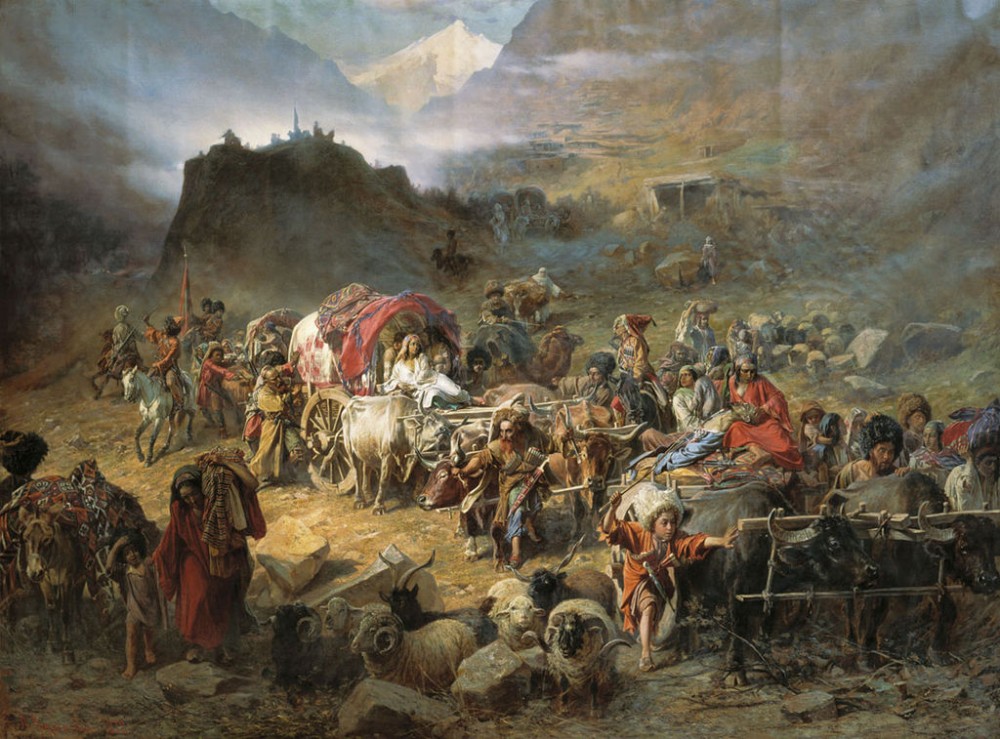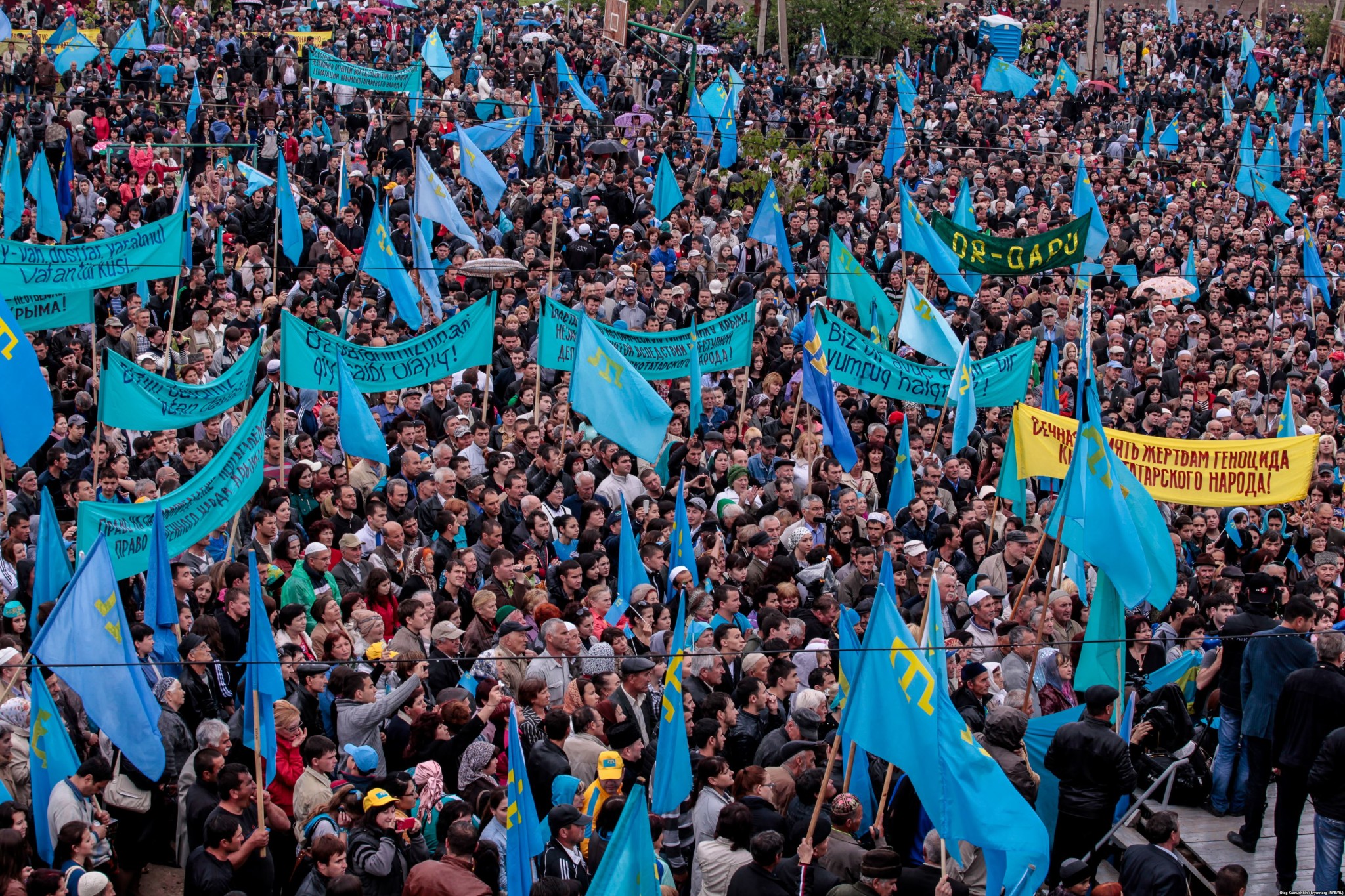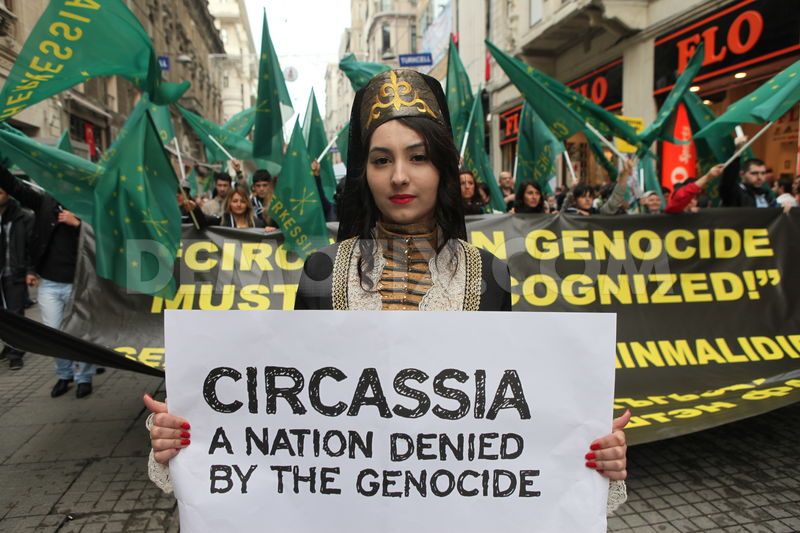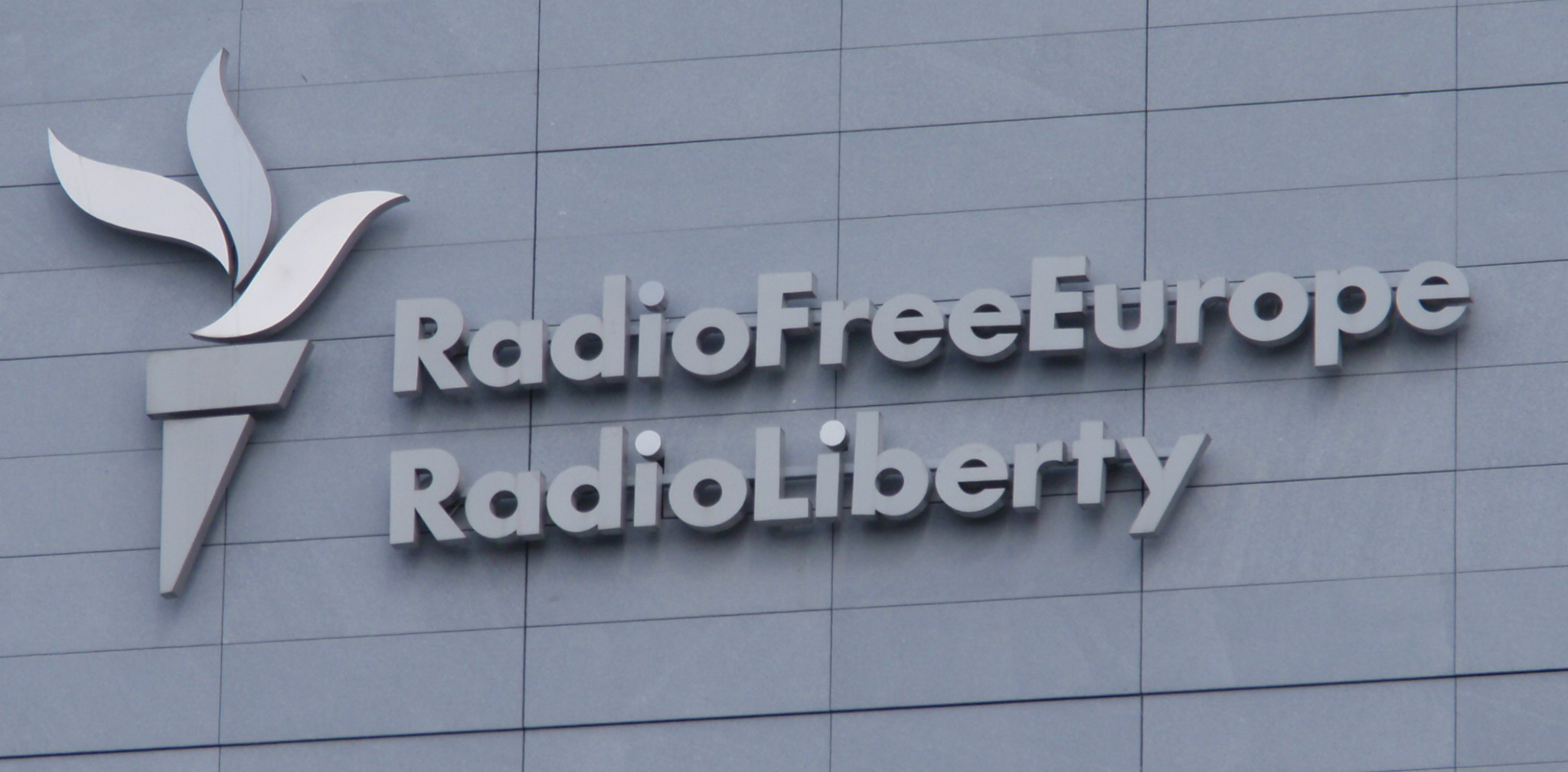For most of Soviet times, Western commentators, to the extent they dealt with the issue at all, assumed that those ethnic communities inside the USSR which the West ignored were most at risk of repression because Moscow could act without fear of international repercussions.
That was true then and remains true now but only under one condition: the attention from the Western world must be sustained at a high level. Indeed, under Vladimir Putin, those which have attracted a large amount of attention in the West and then lost it are most at risk because the Kremlin leader views them as “agents” of the West and thus prime candidates for repression.
Among all the nations inside the borders of the Russian Federation or occupied by Russian forces, the two that fall into the category of having attracted enormous attention at one point and then less attention after a time are the Circassians in the North Caucasus and the Crimean Tatars whose homeland is on the Ukrainian peninsula.
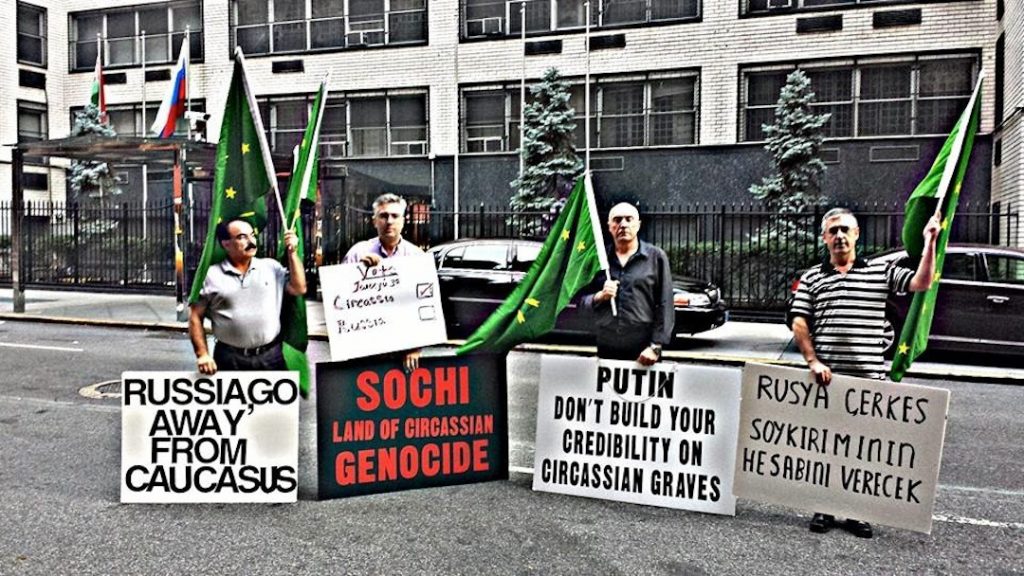
Prior to the Sochi Olympics, few beyond the specialist community paid much attention to the large Circassian population in the North Caucasus (500,000) and in the Middle East (more than five million); but thanks to the work of Circassian activists in both the homeland and the diaspora, the world came to know the history of this proud people.
Not only did the Circassians resist Russian aggression far longer than any other people eventually absorbed into the empire, but they took their military traditions with them when the Russian government expelled them in 1864 and have become important leaders of the security services in many Middle Eastern countries.
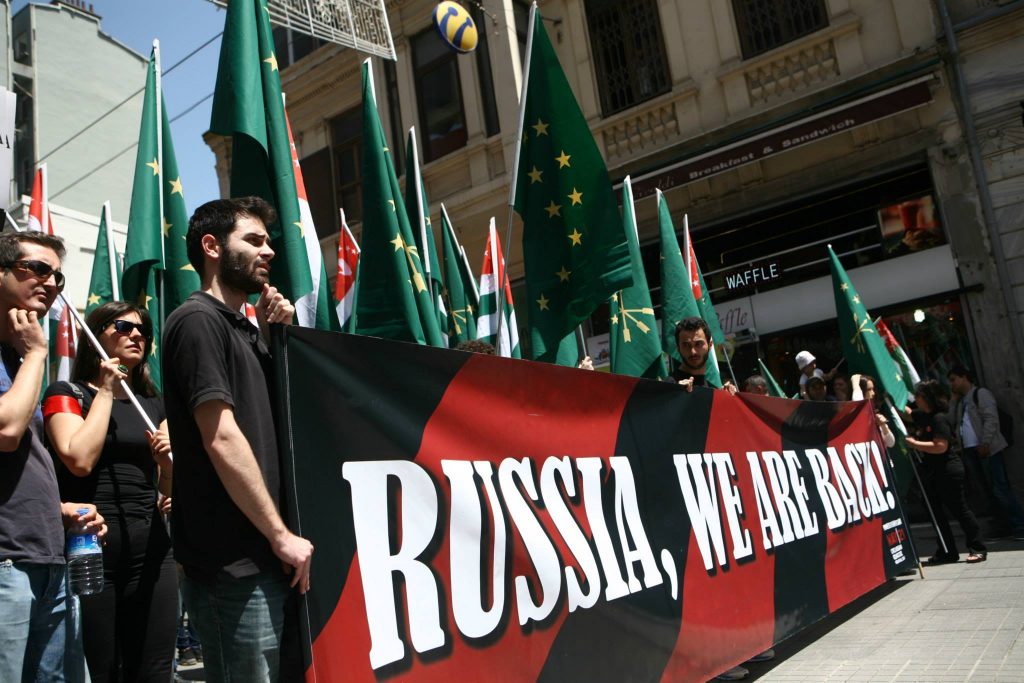
Putin was anything but pleased with the attention they attracted during the run-up to the Sochi Games, but he was constrained by it from acting against this nation. Indeed, in order to muddy the waters in his best “hybrid” fashion, the Kremlin leader even made certain concessions to them and promised more.
But unfortunately and despite new and compelling reasons for paying attention to this nation – many of its members are attempting to flee from war-torn Syria and have been blocked from returning to their ancestral homeland – international attention has flagged. Circassian activists continue to speak out, but they no longer have the “peg” the Olympics represented to tie stories about them to and thus are getting less and less media and political attention.
Because of that and because of their actions earlier, Circassians appear to have become a target for Putin’s increasing repression. And his crackdown on them is likely to increase because he believes they deserve punishment for what they did earlier and he is convinced that they will see that this time around the West will ignore them – and feel compelled to turn to him.
The Crimean Tatars tragically are in a similar position. They have resisted Soviet and Russian repression, suffered deportation and as a result of their own actions at the end of Soviet times and since then partially succeeded in returning to their homeland on the Ukrainian peninsula.
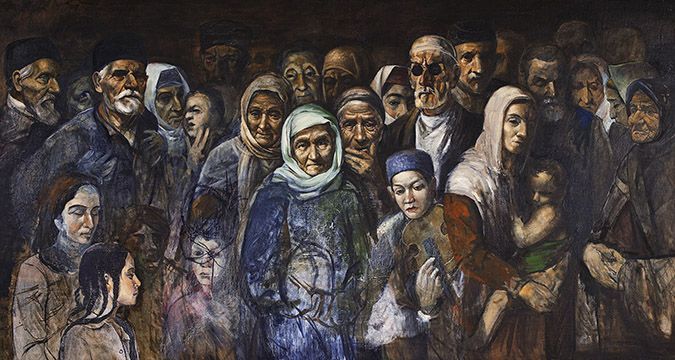
They were also the most consistent opponents of the illegal Russian Anschluss of their land; and for that reason, they captured the imagination of many around the world, with stories about the Crimean Tatars a regular feature of Western television and the print media whenever Ukraine and Russian aggression was discussed.
But now, while Western outlets still talk about the need for Russia to return Crimea to Ukraine, they speak less and less about the Crimean Tatars – and Moscow has responded in the same way it has to the Circassians after the West began to ignore them against after the Sochi Games were over.
Russian repression of the Crimean Tatars has been far better documented than has Russian repression against the Circassians, thanks to the work of a remarkable group of Crimean Tatar and Ukrainian journalists and activists and the fact that Russian repressions in Crimea have been so outlandish and brutal.

But their stories which appear in the Ukrainian media and the Internet all too often are not picked up by the mainstream media in Western countries. Putin can see this and consequently assumes he can act with ever greater brutality, confident that he won’t be called on this in any serious way.
The fewer stories about the Circassians and the Crimean Tatars that appear, the more confident he will be that he can get away with his authoritarian actions. The only way he can be stopped is for the West to begin paying more attention to both these peoples and others in the new Russian empire.
Western media outlets and governments have a double obligation for doing so: On the one hand, it is a simple matter of morality to defend the weak victims against the often vicious strong. And on the other, earlier Western coverage helped make these people targets of Russian repression. Only more coverage of them has a chance of stopping Putin’s moves against them.
Related:
- Moscow disinformation escalating from mass media to Russian academic output
- Maidan and its significance. A historical retrospective
- Ukraine will not suffer the fate of Caucasus
- Putin rebuilding the Iron Curtain in his typical “hybrid” fashion
- Crimea and the Crimean Tatars: Centuries of competing claims and forgotten history
- Stalin’s Caucasus crimes Putin wants you to forget
- Putin’s twisted imperial logic: The (many) historical claims on Russian lands
- Putin’s ‘Russian World’ said a model for dispersed non-Russian nations within Russian Federation
- Russia’s suspension of Mejlis “Hitlerism” — World Congress of Crimean Tatars
- Ukraine’s parliament speaker calls for UN help for the Crimean Tatars
- 7 myths driving Russia’s assault against the Crimean Tatars
- FILM REVIEW: “A Struggle for Home: The Crimean Tatars”




